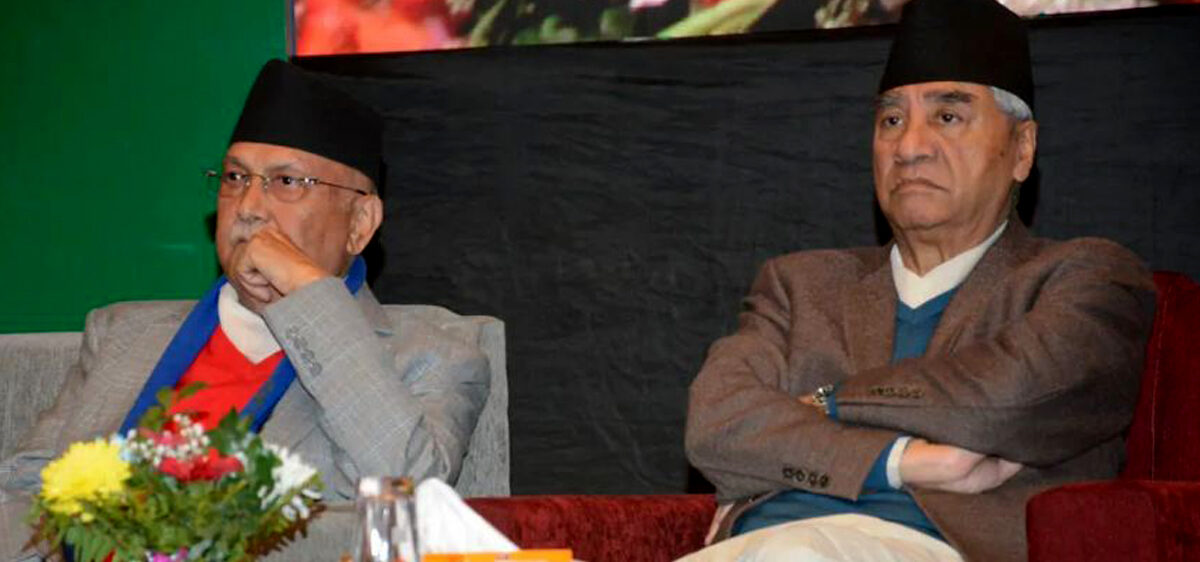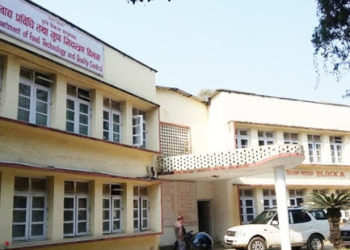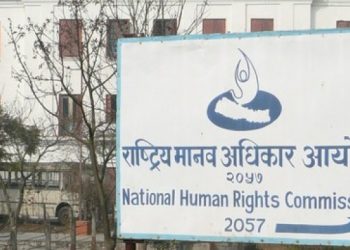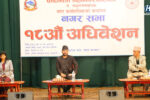KATHMANDU: The government is facing significant hurdles in parliament as six ordinances introduced before the winter session struggle to gain approval. Among them, the controversial Ordinance to Amend Some Nepal Acts Relating to Land-2025 has created a political deadlock, with key coalition partners withdrawing their support.
The Janata Samajwadi Party Nepal (JSP) led by Upendra Yadav and the Loktantrik Samajwadi Party (LSP) led by Mahant Thakur have officially opposed the ordinance, citing concerns about deforestation and illegal land occupation.
LSP Chair Thakur announced the party’s opposition on Wednesday, dealing a fresh blow to Prime Minister KP Sharma Oli’s administration.
Despite the ordinance’s expected passage in the House of Representatives, its fate in the National Assembly appears grim.
JSP Nepal holds three seats and LSP one, making their opposition decisive. If the ordinance fails in the National Assembly, it could mark a significant embarrassment for the government.
Adding to the complexity, the Janmat Party, led by CK Raut, is still deliberating on its stance. Party spokesperson Sharad Singh Yadav stated that a formal decision would be made after further consultation with experts.
With multiple Madhesh-based parties voicing concerns, the ruling UML and Nepali Congress are now scrambling to find a resolution.
In response to the crisis, Prime Minister Oli convened a high-level political mechanism meeting in Baluwatar. The discussion centered on potential amendments to the ordinance to address coalition members’ concerns. The Nepali Congress proposed either withdrawing or revising the ordinance based on expert recommendations.
A Congress leader present at the meeting said“rather than pushing forward with a flawed ordinance, the government should consider amendments to avoid political fallout.”
Amid rising tensions, the ruling coalition has initiated formal and informal discussions with smaller parties, including Janamat, LSP, JSP, and Nagarik Unmukti. While Nagarik Unmukti Chairperson Ranjita Shrestha has remained silent, party patron Resham Chaudhary has openly opposed the ordinance.
Uncertainty over government strategy
Despite the opposition, government leaders remain hopeful. Nepali Congress Chief Whip Shyam Ghimire downplayed the crisis, asserting that the ordinance could still pass through dialogue and compromise.
UML Chief Whip Mahesh Bartaula echoed similar confidence, said, “the ordinance will be brought in a manner that ensures majority support when put to a vote.”
However, skepticism remains. Although the government has until March 31 to approve the ordinance, officials acknowledge the need for strategic adjustments.
Speaker Devraj Ghimire’s parliamentary agenda for Thursday notably omitted the six ordinances, indicating a delay in proceedings.
Why the controversy
At the heart of the dispute is the provision granting land to landless Dalits, squatters, and unorganized settlers. Critics argue that the ordinance also enables large-scale encroachment of public lands, including forests and riverbanks, potentially benefiting land mafias and middlemen.
JSP leader Upendra Yadav has warned that the ordinance threatens the fragile Chure hills, vital to the ecological balance of the Madhesh region.
“If this ordinance passes, it will destroy Chure and turn Madhesh into a desert,” a JSP leader said, signaling broader environmental and social concerns. Opposition from Madhesh-based parties underscores fears that the ordinance could be politically costly in their constituencies.
The land ordinance has faced resistance since its inception. Initially approved by the cabinet on January 10, it was forwarded to President Ram Chandra Paudel, who hesitated before issuing it on January 15 after internal political pressure.
Even within the ruling Nepali Congress, influential leaders such as Dr Shekhar Koirala, Dr Chandra Bhandari, and Bishwaprakash Sharma have opposed the ordinance.
Nepali Congress leaders had reportedly expressed concerns about the ordinance’s implications but were urged to remain silent. Before the winter session, a ruling coalition meeting instructed members not to publicly criticize the ordinance, highlighting internal divisions.
Government under pressure as deadline looms
As the ordinance deadline approaches, Prime Minister Oli is facing mounting pressure from both allies and opposition parties. His appeal for unity within the coalition has not prevented dissent from surfacing.
While the government may attempt last-minute negotiations or amendments, the risk of failure remains high.
With key coalition partners openly resisting, the land ordinance could prove to be a significant test of the ruling alliance’s stability.
If unresolved, it may not only derail the ordinance but also deepen existing political fractures, impacting future governance and legislative efforts.









Comment